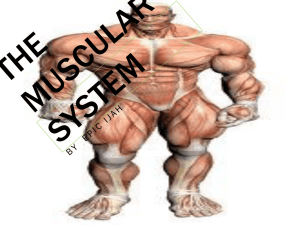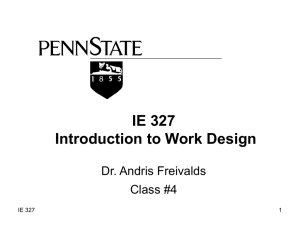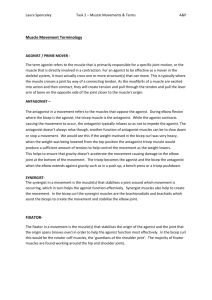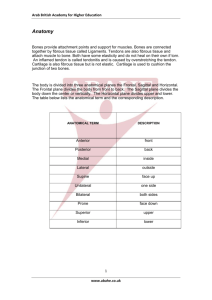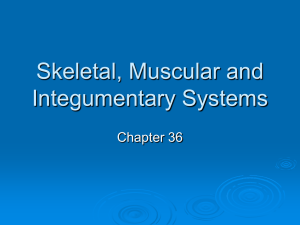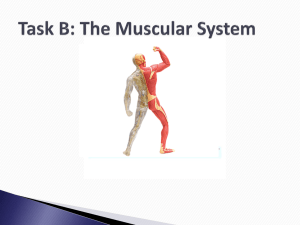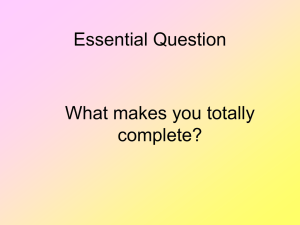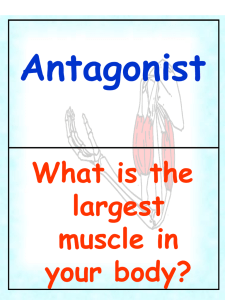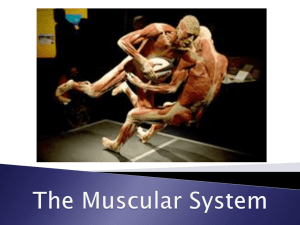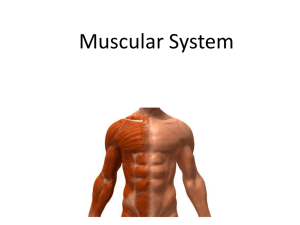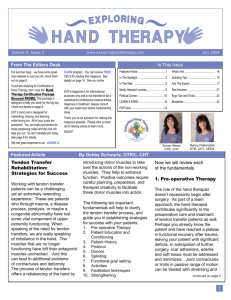muscles sm 379KB - Montgomery High School
advertisement
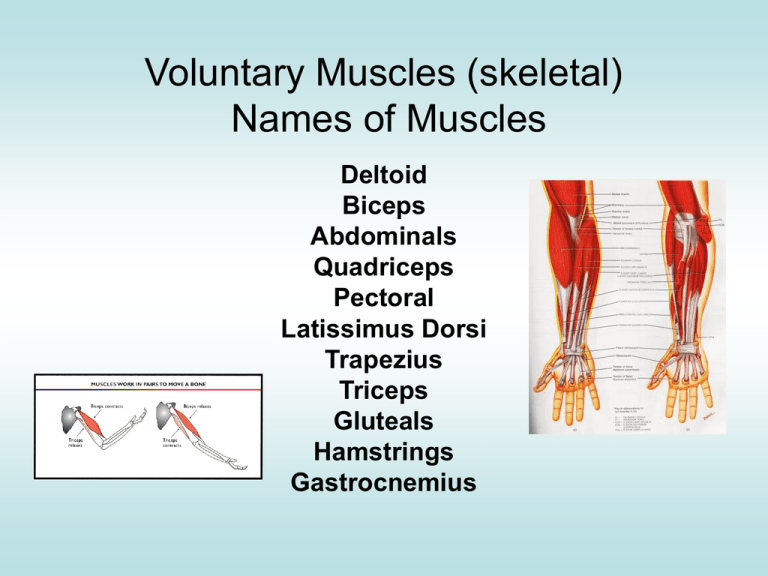
Voluntary Muscles (skeletal) Names of Muscles Deltoid Biceps Abdominals Quadriceps Pectoral Latissimus Dorsi Trapezius Triceps Gluteals Hamstrings Gastrocnemius Three types of muscles. • Cardiac • This muscle is only found in the walls of the heart. • They contract and relax the heart continuously to pump blood through it, without conscious effort from you. • Involuntary Muscles - smooth • These are the muscles around organs such as the intestines and blood vessels. Like the cardiac muscles, they work without conscious effort from you. • Voluntary Muscles - skeletal • These muscles are attached to the skeleton and are under your control. Different types of joints Antagonist & Agonist • Muscles can only pull. To make a joint move in two directions, you need two muscles that can pull in opposite directions. – Antagonistic muscles are pairs of muscles that work against each other. • One muscle contracts (agonist, or prime mover) while the other one relaxes (antagonist) and vice versa. _______________ tendon _______________ tendon _______________ tendon _______________ tendon forearm is lowered Origin & Insertion • Muscles are attached to two different bones by tendons. When the muscle contracts only one bone moves. • The place where the muscle is attached to the stationary bone is called the Origin. • The place where the muscle is attached to the moving bone is called the Insertion. Origin FLEXION Insertion ___origin _____ tendon ___insertion___ tendon ___origin______ tendon ___insertion____ tendon forearm is lowered Synergists • Any other muscle which helps the prime mover to cause a movement is a Synergist. • An example of this is when bending the arm at the elbow, the synergist would be the brachialis muscle in the forearm. Agonist and Antagonist Muscles Agonist Muscle Preparing to kick a ball Kicking a football Abduction of the arm from the side of your body Bicep curl Antagonist Muscle Questions For the following movements give the agonist and antagonist Bicep Curl a) Preparing to kick a ball b) Kicking a football c) Abduction of the arm from the side of your body d) Bicep curl

